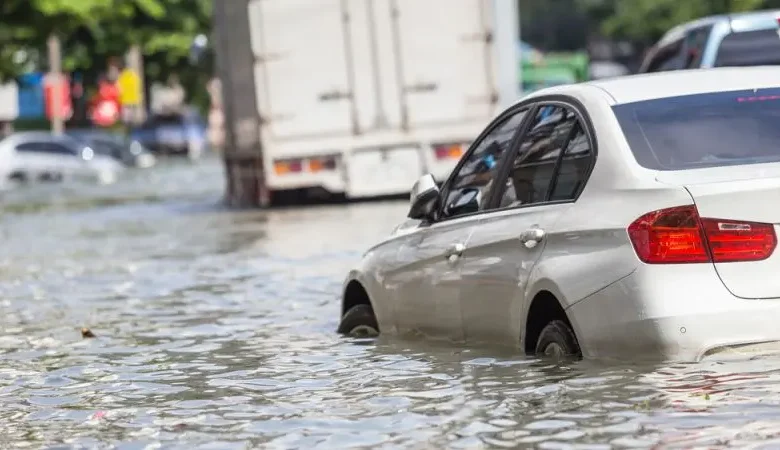Months after record rains in UAE, some cars still stuck in garages

Some UAE residents are still struggling with their damaged cars and are awaiting repairs three months after the record rains in April and subsequent flooding that damaged thousands of vehicles in Dubai, Sharjah and other emirates.
The flooding completely submerged cars in various areas, severely impacting vehicles and their owners. Those vehicles that insurers did not write off landed in garages for maintenance. However, garage operators are also struggling to keep pace with the number of cars requiring repairs from insurers and individual owners.
Motorists who bought comprehensive insurance plans had their car damages covered under natural catastrophe coverage. However, people with third-party insurance plans had to pay for car repairs out of their pockets.
Osama Abdul Jaber, a 52-year-old Palestinian residing in Dubai, described the challenges his family faced. “Two of our cars were damaged,” he said. While their one car was fixed within a week, their other vehicle is still at the service shop. “The insurance initially didn’t want to cover the Dh25,000 worth of damages,” he explained. “It took a month to get approval, and we’ve been waiting for spare parts ever since.”
Hind, a 39-year-old Jordanian, also faced difficulties with her car parked in the building basement. “When I tried to start it after the floods, nothing happened,” the English teacher said. She visited seven mechanics, and all faced issues with parts availability. “They all said the water had damaged the engine,” she added, as her car remains parked temporarily in the industrial area.
Both residents detailed the extent of the damage. “The car’s computer and traction system were completely destroyed (with water),” Jaber said.
Hind explained, “Water leaked into the engine, and opening it was impossible.”
The insurance and repair delay upended the Jaber household. “It took a month to get the insurance approval and the delay disrupted our routines. Me, my wife, and son work in three different cities, and my daughter goes to university, so we all need cars.”
The aftermath of the flooding has left many residents in a difficult position, trying to balance the need for a functional vehicle with the high cost and unavailability of essential parts.
Hind now relies on Uber for daily commute. Sharing her frustration, she said, “My routine remains disrupted. The increased cost of Uber rides and the inconvenience of multiple trips for errands have constrained my mobility and daily activities.”
Spare parts shortage
Favas EM, managing director at Al Asli Auto Maintenance, explained, “Three months after the flood, even today we get several calls from customers asking about repairing cars affected by the water.
“Many cars are yet to be repaired due to the shortage of spare parts. Most of the spare parts warehouses are situated in Jebel Ali and it was one of the most affected areas. Companies have recalled the spares and hence most dealers are in short supply, thereby creating increased demand with limited supply.”
Favas further highlighted a particular issue with certain brands. “Once water has entered these vehicles, their electrical parts, including the fuse box, are damaged, causing a need to replace the entire electrical system, which is not affordable for many commoners. Replacing a fuse box for a hefty amount in a second-hand vehicle is forcing the owners to sell the vehicle at very low prices.”
The aftermath of the flooding has left many residents in a difficult position, trying to balance the need for a functional vehicle with the high cost and unavailability of essential parts.










